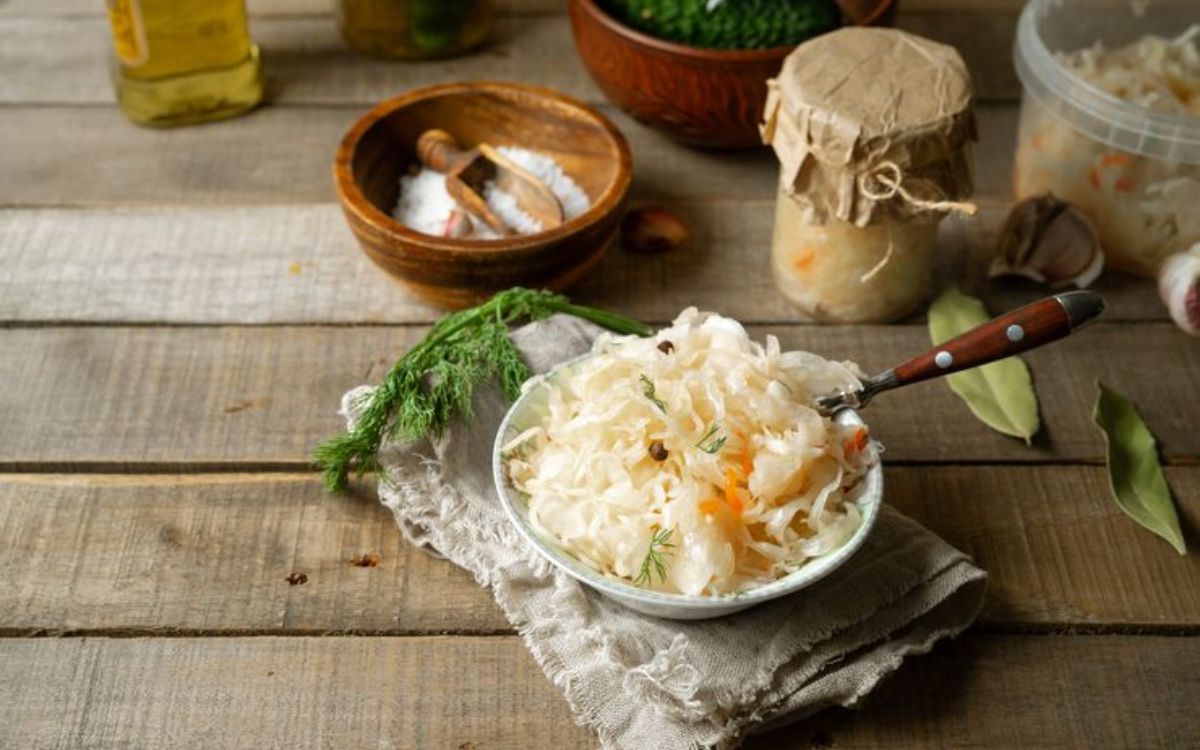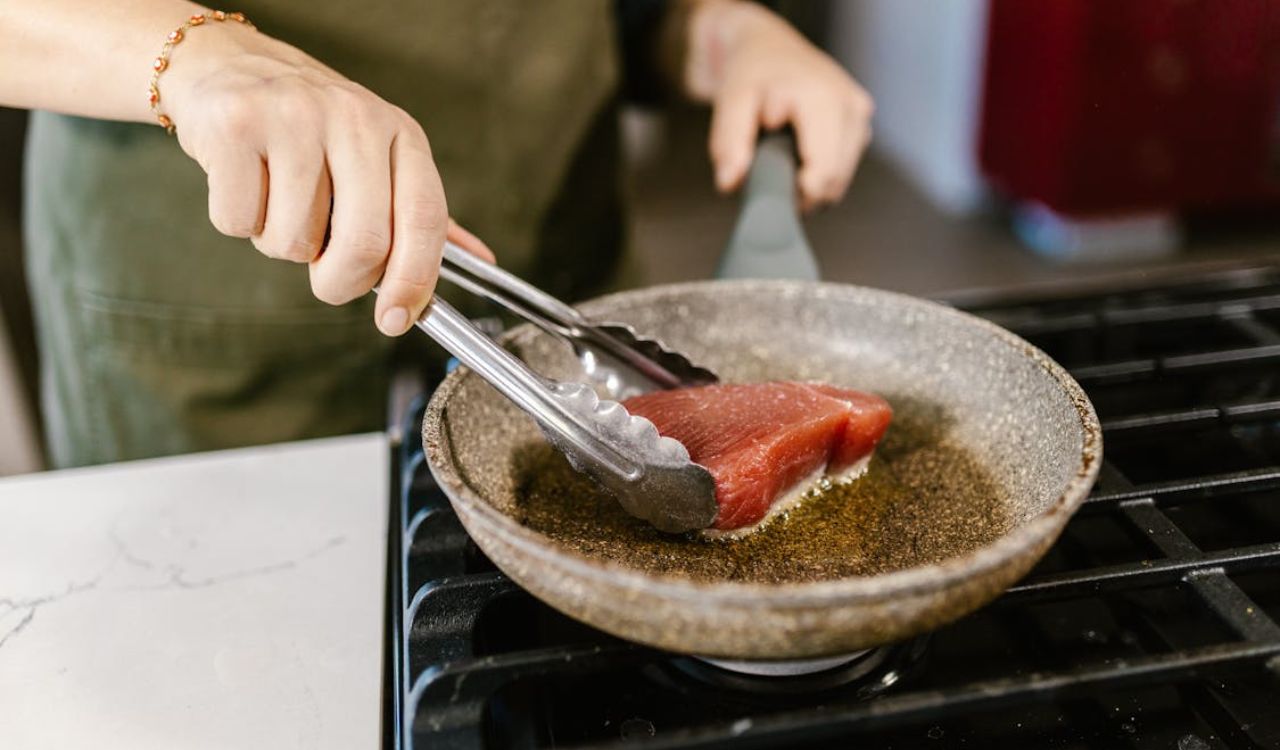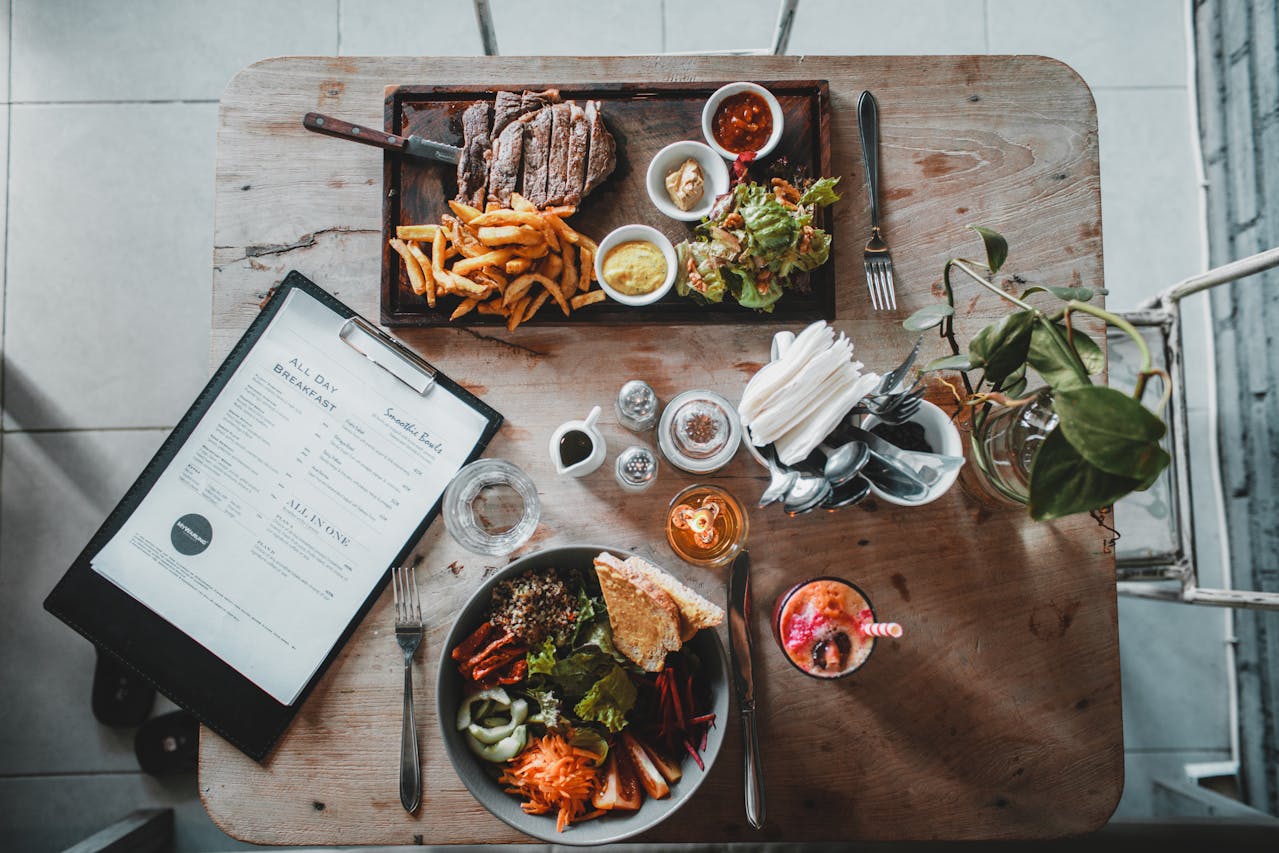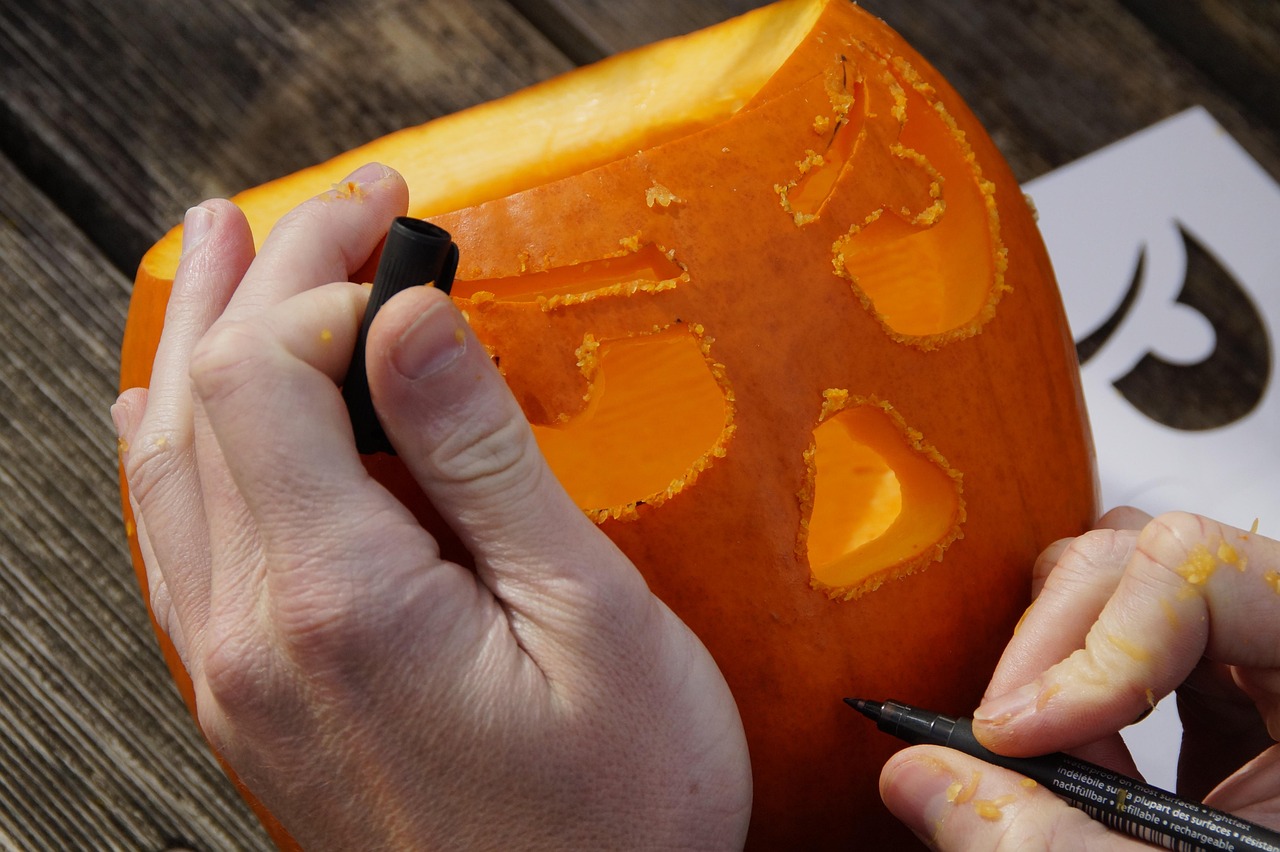The Rise of Fusion Barbecue in Texas Inspired by Global Flavors
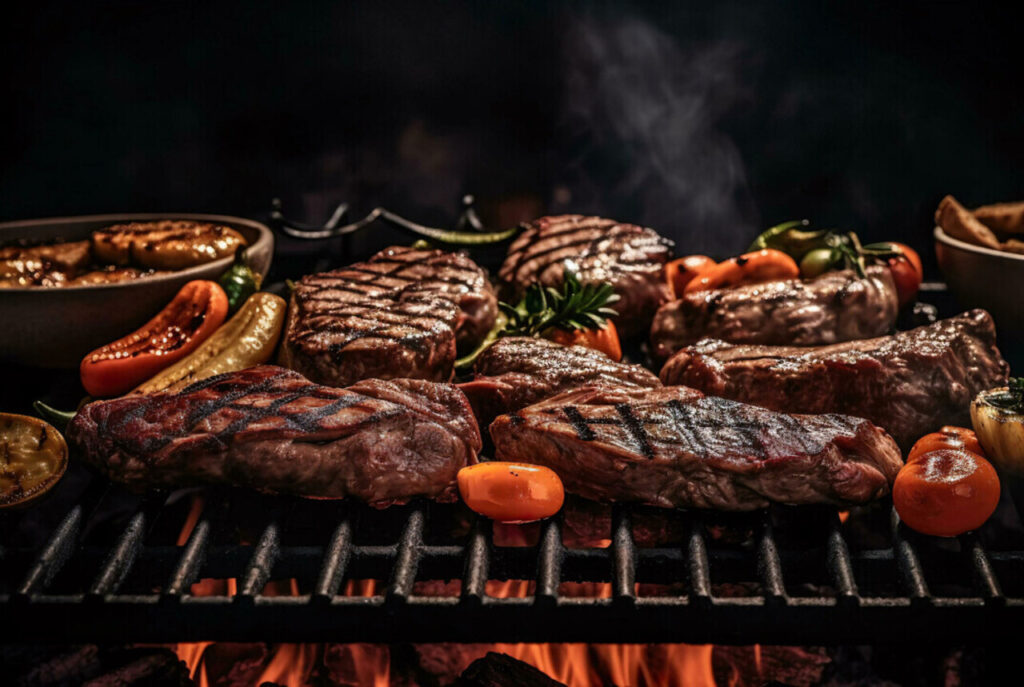
Texas barbecue has always been more than food; it’s culture, ritual, and pride wrapped in smoke. But in recent years, that slow-cooked legacy has started to evolve. Across the Lone Star State, a new generation of pitmasters is experimenting beyond hickory and salt, blending the sacred art of Texas barbecue with flavors pulled from every corner of the world.
From Seoul-inspired short ribs to jerk-rubbed brisket, fusion barbecue isn’t a novelty ; it’s a movement. It reflects Texas’s growing diversity and its chefs’ willingness to push against old boundaries. What was once strictly brisket, ribs, and sausage has now turned into a global playground of taste.
This evolution isn’t about erasing tradition. It’s about honoring it while bringing in something fresh. And the result? A smoky, flavorful collision of cultures that feels distinctly Texan and unmistakably modern.
The Roots of Texas Barbecue Meet the World

The soul of Texas barbecue lies in simplicity – meat, smoke, and time. But even purists admit that the world has started to seep into the pit. As Texas cities become cultural crossroads, barbecue joints are reflecting that blend of heritage and innovation.
A Tradition Forged in Fire
Barbecue came to Texas through a mix of German, Czech, and Mexican influences. What made it unique was patience – slow smoking over oak or mesquite until meat turned tender and flavorful. Those same roots now make Texas the perfect canvas for global ideas.
From Local Smokehouses to Global Palates
Restaurants in Austin, Houston, and Dallas have embraced international twists like gochujang-glazed ribs or tamarind-brushed brisket. It’s not about replacing barbecue tradition; it’s about expanding it. The smoke remains the same ; it’s the seasoning that travels.
Fusion Flavors Defining the New Texas Barbecue
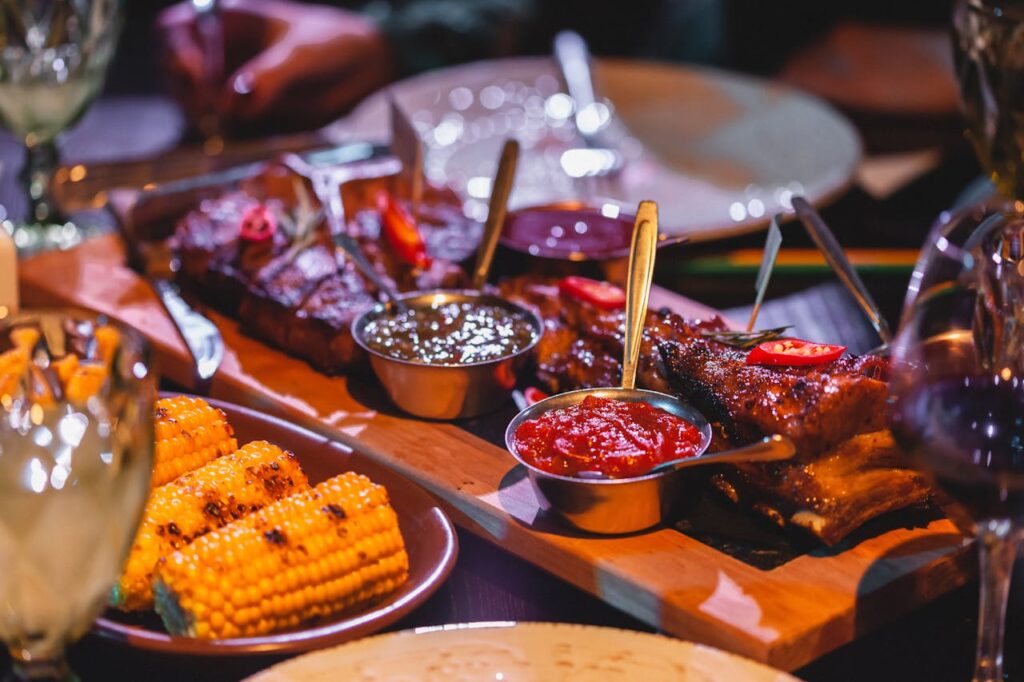
The phrase “fusion barbecue” might make traditionalists nervous, but it’s already here and it’s delicious. Chefs are borrowing techniques and flavor profiles from around the world while keeping the signature Texas smoke as the foundation.
Korean-Inspired Heat
Korean flavors have become a standout in Texas smokehouses. Gochujang (a fermented chili paste) brings a deep, sweet heat to pork ribs and brisket burnt ends. Some pitmasters are even pairing kimchi slaw with smoked pork for a perfect balance of rich and tangy.
Mexican Smoke and Citrus
Given Texas’s shared border with Mexico, it’s no surprise that smoky adobo rubs, citrus marinades, and chipotle sauces have become staples in modern barbecue. Carnitas-style pulled pork or cochinita pibil brisket tacos merge backyard barbecue with Yucatán soul.
The Pitmasters Behind the Movement

Behind this flavorful shift are pitmasters who treat the smoker like a global spice lab. Many of them come from multicultural backgrounds or have spent years cooking abroad, and they’re bringing those experiences home to Texas.
Trailblazers of Flavor
Chefs like Quy Hoang (Blood Bros. BBQ in Houston) or Ara Malekian (Harlem Road Texas BBQ) have become faces of this evolution. They mix Vietnamese fish sauce, Argentine chimichurri, and Middle Eastern spices into the Texas smoke tradition with stunning results.
Balancing Respect and Reinvention
These pitmasters aren’t trying to rewrite Texas barbecue; they’re building on its foundation. The balance lies in maintaining low-and-slow cooking methods while letting global ingredients add new layers of flavor. It’s innovation grounded in respect.
Where It’s All Headed
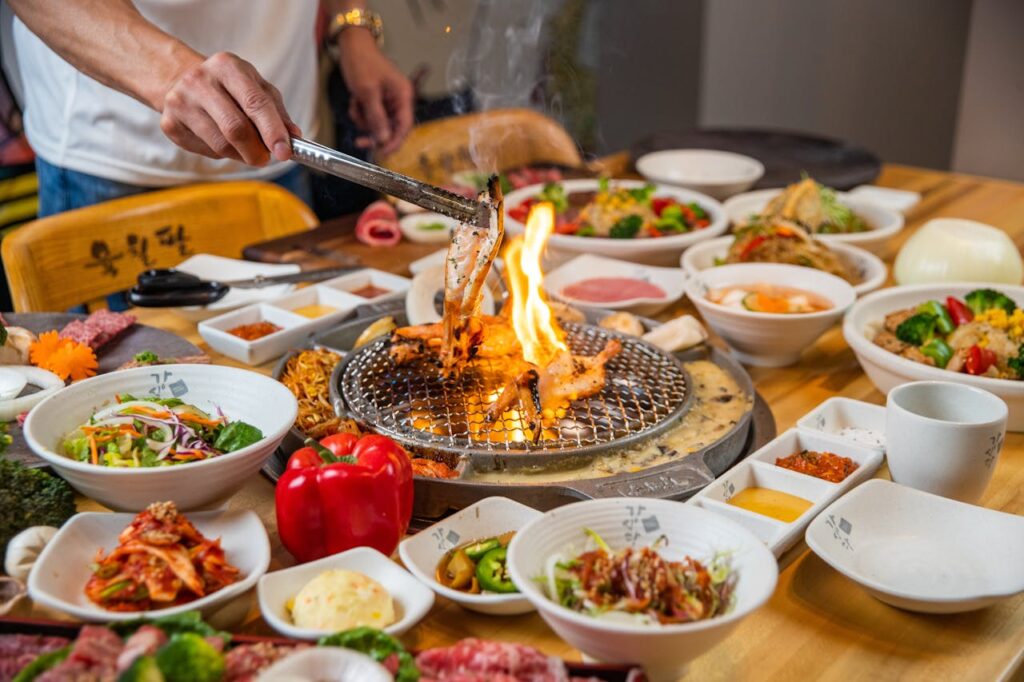
Fusion barbecue isn’t a passing trend ; it’s the natural next step. As Texas becomes more diverse and food cultures overlap, the smoke pits are telling a new story about what it means to be Texan today.
The Future of Smoke
We’ll likely see even more experimentation: Indian-inspired masala rubs, Mediterranean lamb smoked with Texas oak, or Thai sweet chili glazes. The unifying thread will remain the smoke, the patience, and the communal table.
A New Kind of Tradition
What’s happening now isn’t the end of classic Texas barbecue. It’s proof that traditions survive best when they adapt. Fusion barbecue shows that Texas can honor its roots while opening the pit to the world and that’s something worth savoring.


